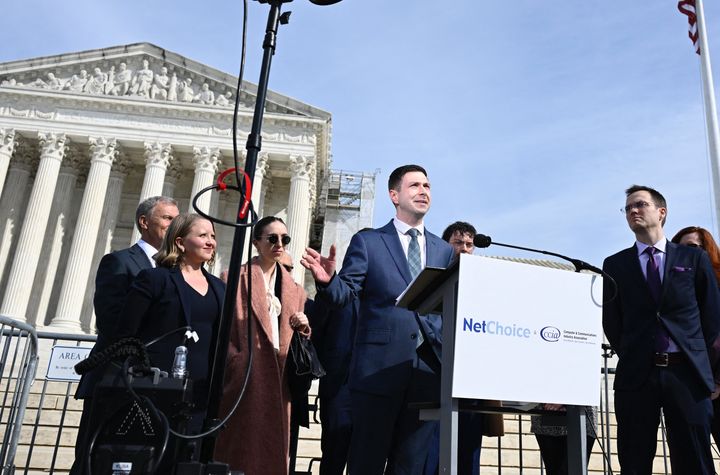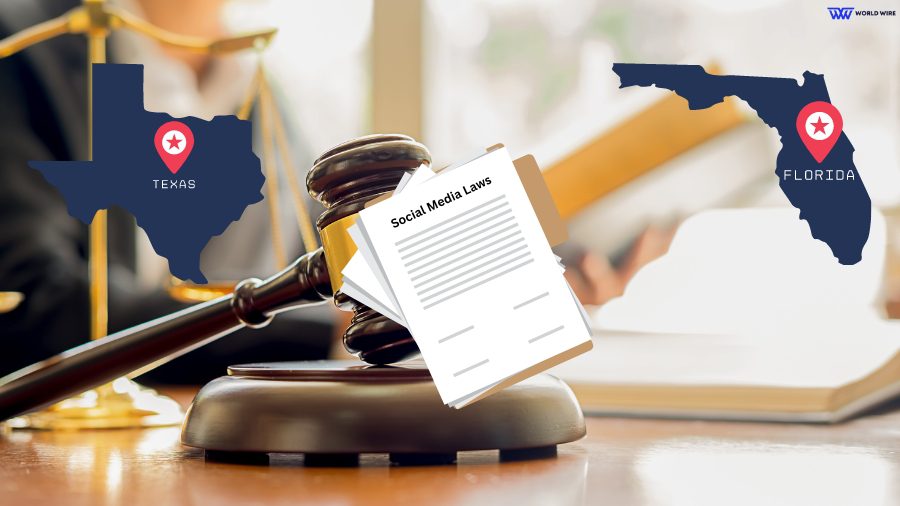On Monday, the justices of the U.S. Supreme Court expressed their reservations and unpreparedness to completely block Republican-backed legislation in Florida and Texas that aims to limit social media firms’ ability to remove content that the platforms find objectionable.
The justices are torn between deciding whether to let the law take effect or not as it draws concerns.
Let’s read the news and find out more.
Supreme Court Faces Split Over Social Media Laws in Florida and Texas
Both of the laws were passed in 2021 in response to the Jan. 6, 2021, attack on the U.S. Capitol, where social media companies decided to ban former President Donald Trump from their sites, sparking a dispute over what their supporters saw to be discriminatory practices by social media companies.
The question was whether these 2021 state laws regulating content-moderation practices by large social media platforms, generated by Republican worries about supposed bias against conservative voices, infringed upon the companies’ free speech rights under the U.S. Constitution’s First Amendment.
Tech trade associations NetChoice and the Computer & Communications Industry Association, whose members include Alphabet’s Google, which owns YouTube, Facebook parent Meta, and TikTok and Snapchat owner Snap, fought against the laws.
Throughout the nearly four-hour arguments in the cases, the justices voiced their concern that the laws would hamper the platforms’ editorial discretion, thereby going against the rights of freedom of speech.
Also, read “How Trump Defeated Nikki Haley in Her Home State SC.”
Yet, they also indicated that they would allow the laws to control some non-expressive internet services.
The justices need to determine whether the First Amendment protects the social media companies’ editorial discretion and forbids the government from compelling businesses to publish content against their will.
Henry Whitaker, Florida’s solicitor general, was questioned by conservative Chief Justice John Roberts on “whether our first concern should be with the state regulating what, you know, we have called the modern public square.”
To which Whitaker argued defending that Florida wants to control conduct and not speech.
The conservative justice Brett Kavanaugh noted that previous decisions of the Supreme Court “emphasize editorial control as being fundamentally protected by the First Amendment.”
Also, read “AT&T Offers Full Day $5 Credit for Outage“

The social media companies also argue that without discretion, the platform would be flooded with hate speech, spamming, and bullying. It also hinders their ability to block or remove content or users.
About Florida’s measure, liberal justice Elena Kagan stated that the justices might not want to “Allow this law to go into effect because of the unconstitutional applications.”
Kagan also expressed that entirely blocking might also become a problem, noting Kagan shared, “We can assume that this statute covers a variety of things that are Gmail-like, direct messaging, and Uber, and things that are not creating speech products.”
In a heated debate, conservative Justice Samuel Alito was seen questioning U.S. Solicitor General Elizabeth Prelogar about whether the phrase “content moderation” was a euphemism for censorship.
The administration of President Joe Biden, which is against the laws, claims that the content-moderation restrictions violate the First Amendment because they force platforms to display and promote content that they deem inappropriate.
Should the rules be upheld by courts, states may implement measures governing content moderation, which would make platform compliance more complicated and costly.
Also, read “Koch Network Halts Funding for Haley’s Campaign.”
Longtime Meta analyst Debra Aho Williamson also noted that social media sites’ capacity to draw in advertising revenue may suffer if the regulations are upheld.
The Supreme Court has a 6-3 conservative majority, and the ruling is expected by the end of June.







Add Comment